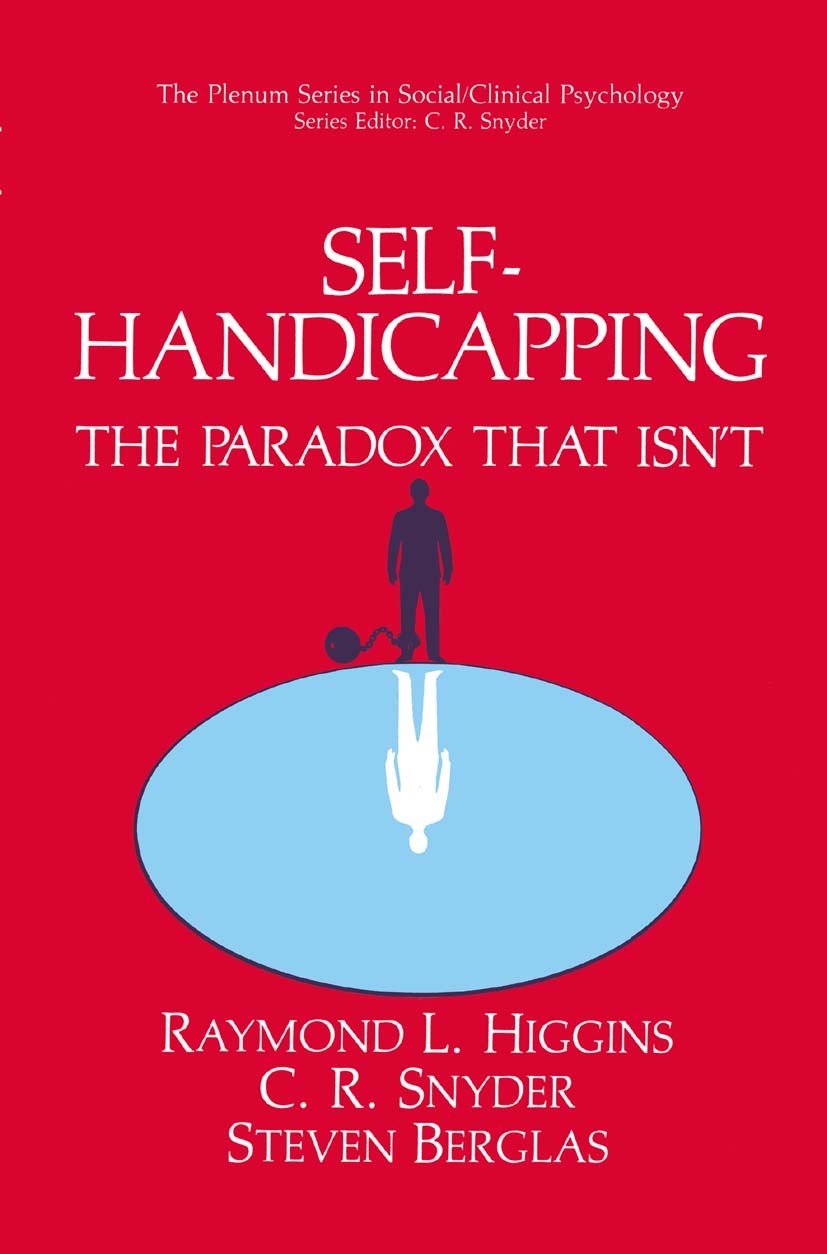| 书目名称 | Self-Handicapping |
| 副标题 | The Paradox That Isn |
| 编辑 | Raymond L. Higgins,C. R. Snyder,Steven Berglas |
| 视频video | http://file.papertrans.cn/865/864454/864454.mp4 |
| 丛书名称 | The Springer Series in Social Clinical Psychology |
| 图书封面 |  |
| 描述 | The concept of self-handicapping can be legitimately anchored in a vari ety of intellectual contexts, some old and some newer. As this volume reminds us, Alfred Adler was perhaps the first to articulate the signifi cance of various self-defeating claims and gestures for protecting the self concept. Thus the apparent paradox of "defeat" in the interests of "pro tection. " More recently (but still more than 30 years ago), Heider‘s "naive psychology" added attributional rhetoric to the description of self-defeat ing strategies. While predominantly cognitive in its thrust, the attribu tional approach incorporated several motivational influences-especially those involving egocentric concerns. Heider hardly violated our common sense when he suggested that people are inclined to attribute their performances in a self-serving manner: the good things I caused; the bad things were forced upon me. The notion of self-handicapping strategies, proposed by Berglas and myself a little more than a decade ago, capitalized on these homely truths while adding a particular proactive twist. We not only make ex cuses for our blunders; we plan our engagements and our situational choices so that sel |
| 出版日期 | Book 1990 |
| 关键词 | Motivation; attribution; psychology |
| 版次 | 1 |
| doi | https://doi.org/10.1007/978-1-4899-0861-2 |
| isbn_softcover | 978-1-4899-0863-6 |
| isbn_ebook | 978-1-4899-0861-2Series ISSN 1568-2528 |
| issn_series | 1568-2528 |
| copyright | Springer Science+Business Media New York 1990 |
 |Archiver|手机版|小黑屋|
派博传思国际
( 京公网安备110108008328)
GMT+8, 2025-12-15 07:41
|Archiver|手机版|小黑屋|
派博传思国际
( 京公网安备110108008328)
GMT+8, 2025-12-15 07:41


